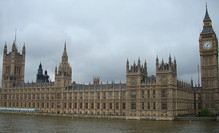 Credit: cruccone
Credit: cruccone Responding to a consultation on the bill, which was published in March, the council claimed the bill in its current form would not significantly improve defamation law.
"The draft bill is entitled a bill to amend the law of defamation. However, as drafted Clauses 1, 2, 3 and 4 of the draft bill are not proposed with the aim of altering the common law significantly, if at all.
"It is recognised that the range of views in this area include views that favour the subject matter of these Clauses being brought into statute. On the other hand (and in fact the majority of the Working Party consider that) the use of statute simply or principally to codify the common law does carry real risks of inviting fresh argument over previously established points, thus increasing potential costs, and of reducing flexibility available at common law."
The working party which produced the response on behalf of the council, which is funded by the Ministry of Justice, also warned that where it is proposed to use the draft bill to reform common law it may "give rise to argument as to the correctness of previous decisions, thus creating uncertainty and increasing potential costs".
In its main conclusions the group called for the enhancement of judicial case management, which it said was the "single most important means" of controlling and reducing costs, as well as behaviour which can increase costs.
The group also called for a consideration of whether jury trials could be confined to cases where a specialist judge is persuaded it is necessary, in another bid to reduce costs.
Internet publishers
Sharing its views on the issue of internet publishing, the working party suggested that one approach may be to offer a "reasonably generous defence" to websites, hosts and internet service providers which provide details of the author of allegedly defamatory material, within a short, defined period of time.
A "less generous defence" would therefore be afforded to those "who take the view that it is inappropriate to make those arrangements", the group said.
"This would not be to criticise either approach by a website, host or ISP," the response adds. "The focus would simply be on ensuring the availability of a remedy by identifying the author or the website, host or ISP as the viable defendant."
The use of notices on articles should also be encouraged on online content, such as in the case of Loutchansky v Times Newspapers Ltd (2002) the council added, so the reader is aware that content of an article is contested, denied or the subject of legal proceedings.
Image by Cruccone on Flickr. Some rights reserved.
Free daily newsletter
If you like our news and feature articles, you can sign up to receive our free daily (Mon-Fri) email newsletter (mobile friendly).









